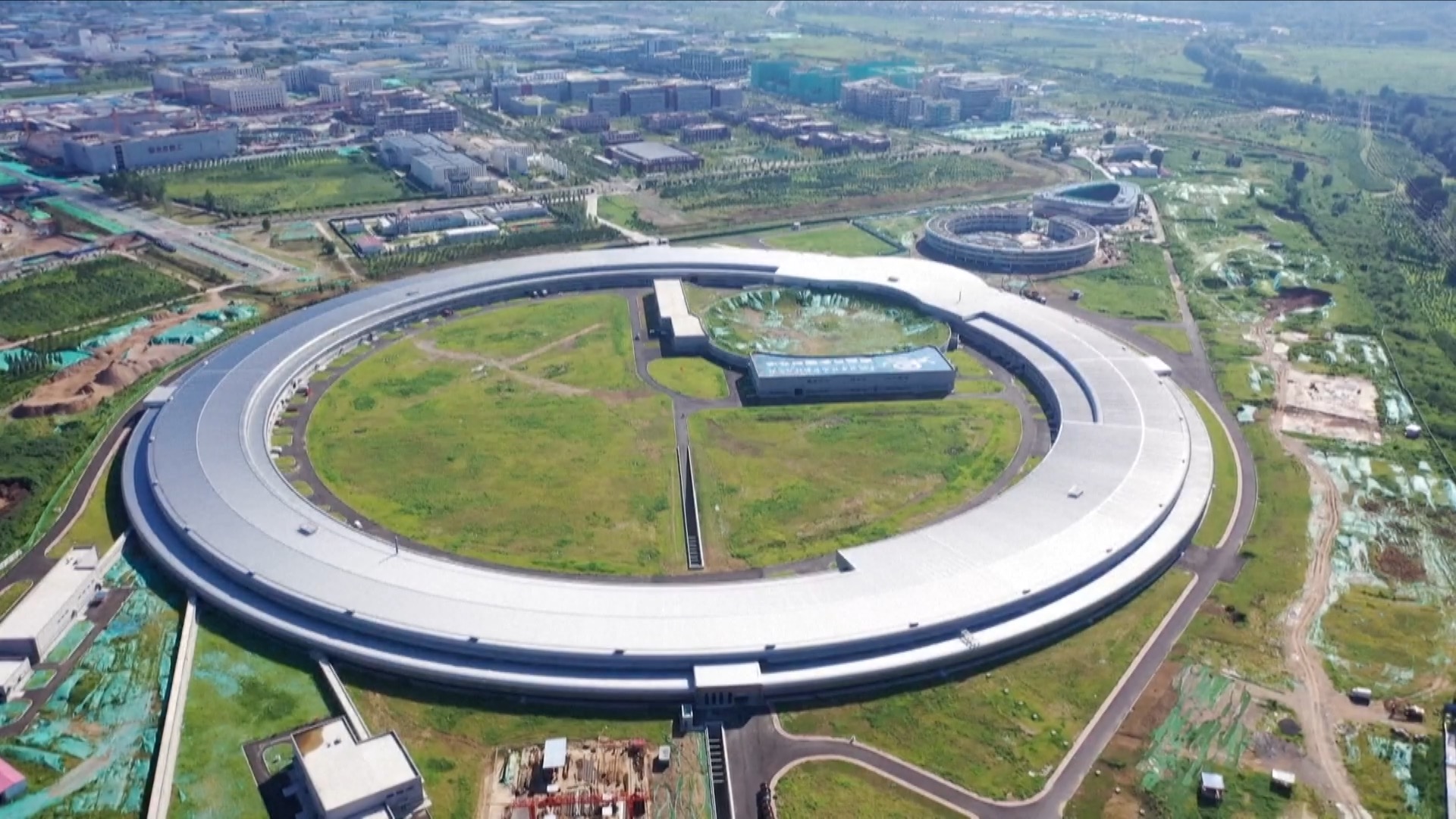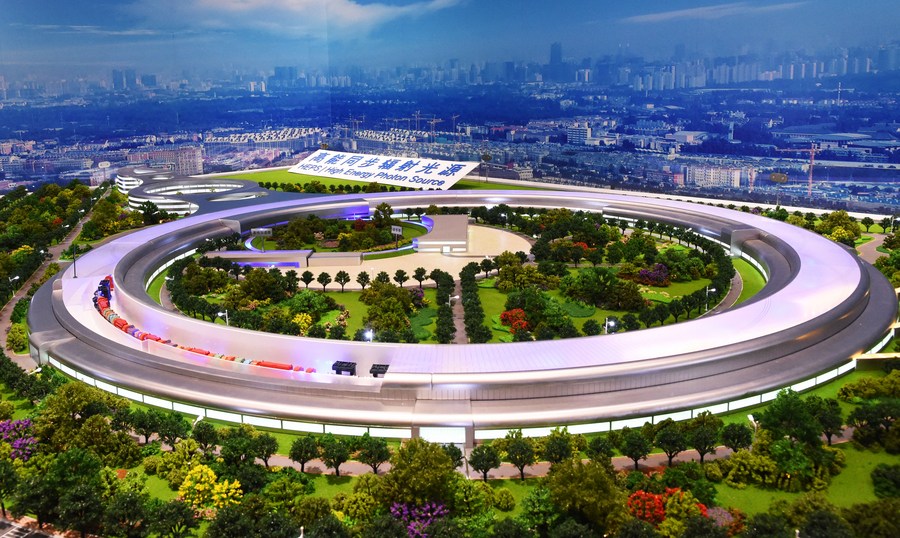
The linear accelerator of the HEPS accelerated its first electron beam in Huairou District, Beijing, China, March 14, 2023. /CGTN
The linear accelerator of the HEPS accelerated its first electron beam in Huairou District, Beijing, China, March 14, 2023. /CGTN
The booster of China's high-energy synchrotron radiation light source has passed the acceptance test, with its key indicators higher than the design requirements and its overall performance reaching the international advanced level.
The light source, the High Energy Photon Source (HEPS), is one of China's major national science and technology infrastructure projects.
Like a supersized X-ray machine, it can accelerate electrons to near-light speed by three accelerators – a linear accelerator, a booster and a storage ring – and generate synchrotron radiation, which features strong penetrability and a high level of brightness, thus helping researchers observe microcosms.
With a circumference of about 454 meters, the booster is the second-stage accelerator to accelerate the electron beam from 500 MeV to 6 GeV, said Jiao Yi, a researcher from the Institute of High Energy Physics under the Chinese Academy of Sciences (CAS), on Friday.

The model of the HEPS in Huairou District, Beijing, China, May 21, 2019. /Xinhua
The model of the HEPS in Huairou District, Beijing, China, May 21, 2019. /Xinhua
Built by the Institute of High Energy Physics, HEPS is expected to become one of the brightest fourth-generation synchrotron radiation facilities worldwide after its construction is complete, and it will serve fields such as advanced materials, aerospace and biomedicine.
Located in Huairou District to the north of suburban Beijing, the facility takes up an area of more than 20 soccer fields. It is China's first fourth-generation synchrotron source and one of only a handful of such facilities in the world.
According to its developer, the Institute of High Energy Physics under CAS, its linear accelerator accelerated its first electron beam in March.
Started in 2019 and expected to be completed by the end of 2025, the HEPS can provide 60 to 70 beamlines at high brightness with more than 90 experimental stations.
(With input from Xinhua)



